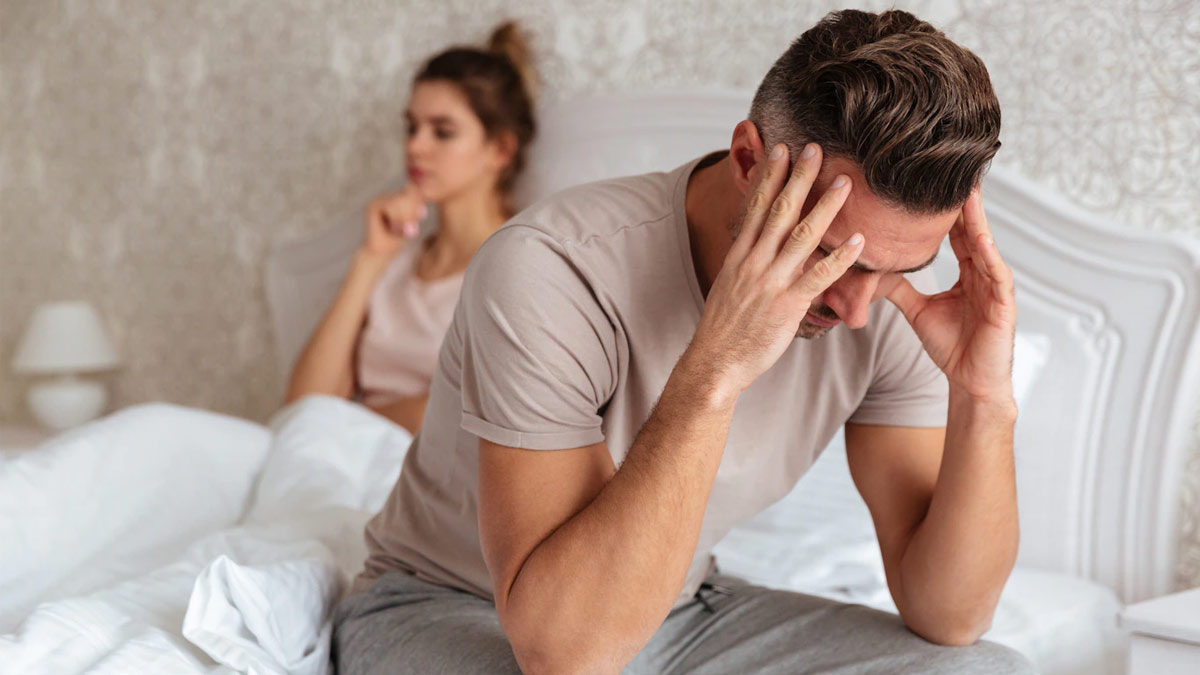
The connection between a person's sex life and their mental health is a complex and multifaceted one. In general, a healthy and satisfying sex life can contribute to overall well-being and a sense of self-esteem and self-worth. However, problems with sex can have a negative impact on mental health and can lead to feelings of anxiety, depression, and low self-esteem.
Link Between Sex Life And Mental Health
Here is how your sex life can have an impact on your mental health:
1. Release of hormones
One way in which a person's sex life can affect their mental health is through the release of certain hormones. During sexual activity, the body releases a number of feel-good chemicals, such as oxytocin, dopamine, and endorphins. These hormones can help reduce stress, improve mood, and promote feelings of pleasure and relaxation.
2. Sense of intimacy
Another way in which sex can impact mental health is through the sense of intimacy and connection that can be created between partners. Engaging in sexual activity with another person can lead to a deeper sense of trust, bonding, and emotional closeness. This can be especially beneficial for individuals who may be struggling with feelings of loneliness or isolation.

Also read: Fungal Sinusitis: Symptoms, Preventative Measures & More
3. Feeling of incompetence
Problems with sex can also negatively affect mental health. Issues such as low libido, erectile dysfunction, or premature ejaculation can lead to feelings of frustration, embarrassment, and inadequacy. These feelings can in turn contribute to depression, anxiety, and low self-esteem.
4. Source of stress or anxiety
For some individuals, the pressure and societal expectation surrounding sex can also be a source of stress and anxiety. The messages we receive from the media, advertising, and culture can make it difficult to live up to unrealistic standards of beauty, performance and sexual behaviour. This can lead to self-doubt, feelings of inadequacy, and negative body image.
Additionally, if an individual has a history of sexual trauma, such as sexual abuse or assault, they may find that the act of sex brings up a lot of difficult emotions and memories. This can make sexual activity unenjoyable or even unbearable. This can then lead to a range of mental health problems such as anxiety, depression, PTSD, or problems with intimacy and relationships.

Also read: Fungal Sinusitis: Symptoms, Preventative Measures & More
In conclusion, the connection between a person's sex life and their mental health is a complex one. A healthy and satisfying sex life can contribute to overall well-being and a sense of self-worth, while problems with sex can have a negative impact on mental health. It is important for individuals to seek help if they are experiencing problems with their sex life, as well as to pay attention to societal pressures and its impact on their mental health.
Additionally, it's worth mentioning that not having sex is also valid, and not indulging in sexual activity does not indicate poor mental health. A person's sexual preferences and choices, whether that be celibacy, monogamy, polyamory, kinks etc are personal, and should not be judged by societal norms and pressure.
How we keep this article up to date:
We work with experts and keep a close eye on the latest in health and wellness. Whenever there is a new research or helpful information, we update our articles with accurate and useful advice.
Current Version